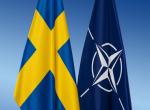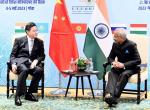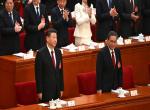For Musharraf, the Supreme Court decision allowing the return of the exiled Nawaz Sharif could mean a disaster. It turns upside down the delicately nuanced American-backed rescue plan to bail out Musharraf in the face of nationwide protests for end of army rule and restoration of democracy.
The deal envisaged Musharraf getting a new term from the outgoing National Assembly, installation of Benazir’s government after assembly elections, and Musharraf hanging up his military boots to become a civilian president after elections. As a civilian president he was to retain control of military affairs, including a say in selection of the army chief and other senior military functionaries. It was hoped this would satisfy pro-democracy agitators with an elected prime minister, while continuing the war on terror through Musharraf.
The deal was premised on the assumptions that Benazir would play ball, Sharif would remain out of the fray and senior judiciary, even if unfriendly, would not go to the extent of upsetting the political apple cart. With a banished Benazir desperate to return to power the first assumption was validated, her commitment to Sharif not to strike any compromise with the military rulers notwithstanding.
However, the other two are proving elusive.The Supreme Court upholding the right of any Pakistani to return home as his unalienable right and further refusing to issue orders for Sharif’s arrest has overnight changed the political landscape. Pakistani politics now revolves around three characters — Musharraf, Benazir and Sharif — instead of two.
The last five months have totally changed Musharraf’s domestic image and standing. His sheen has withered and authority waned. He is seen to be ineffective against terror in North Waziristan, held responsible for precipitating insurgency in Baluchistan by killing Bugti, and unable to manage internal security. Junior commanders and soldiers are uncomfortable killing their own co-religionists and compatriots, who had fought shoulder to shoulder for Pakistan and Islam.
The middle class, mainstay of Musharraf’s support, is incensed over his domestic insensitiveness, confrontation with the judiciary, corruption in the army and contempt for democracy. Alleged use of MQM hoodlums to attack chief justice Chaudhry’s supporters in Karachi has accentuated his Mohajir vulnerability, particularly in Punjab and Sindh where the label carries a stigma.
The Lal Masjid attack has pitted radicals against him and terrorist groups of all hues see in him a common enemy. The Muslim League (Q) led by Musharraf is not only discredited but many of its members are keen to abandon the ship before it sinks.
The option to declare emergency, impose martial law, and conduct elections in a way that returns a loyal assembly may be unaffordable for a battered Musharraf. He will thus make all-out efforts to keep the Sharif brothers out of electoral politics — which may eventually make them the rallying point of anti-Musharrafism. Benazir enjoyed popular support, even enjoying an edge over Nawaz, but two recent developments have dented that.
Firstly, her deal with Musharraf which she glosses as ‘‘facilitated return to democracy’’, makes her look unprincipled and weak. It is particularly so when in operational terms ‘facilitation’ only means her installation as prime minister and withdrawal of cases against her; with nothing for Pakistan or democracy in it. The second factor is the American back-channel role.
People suspect Benazir must have committed more than what serves Pakistan’s interest best in her indecent hurry for power. In a setting where anti-Americanism has become an emotionally shared civil society sentiment, the worst is suspected and believed. It has, by default, raised Sharif’s stature many notches high.
That Sharif has dared Musharraf and is returning home in spite of Musharraf serves his image well. Unlike the other two he is from Punjab, which accounts for 56 per cent of the country’s population. Should the Musharraf-Benazir deal fructify, the net gainer of lifting the ban on the third term for prime ministership may be Sharif, not Benazir (both have been PM twice).
However, the sailing may not be smooth for Sharif. He was sentenced to life for hijacking Musharraf’s plane and attempting his murder. The sentence was remitted and not pardoned; conviction does not stand abolished though imprisonment was taken away. This disqualifies him under Article 62 of the Constitution from contesting.
Secondly, the undertaking given by him of keeping away from Pakistan politics for 10 years may have been found untenable by the court, but in an Islamic society retracting from a solemn affirmation is not viewed kindly. The Saudi royal family which had brokered the deal is also reportedly unhappy. Sharif proposes to spend a fortnight in Saudi Arabia to do damage control, before returning to Pakistan.
The likely scenario is Sharif goes to jail or gets sent to Saudi Arabia should he return, his party fares well in election taking advantage of his martyr’s image, the state undertakes repressive measures to deny power to his party, politics comes on to the streets, and the judiciary adds to Musharraf’s woes leading to political instability. All this lasts till democracy eventually triumphs, which may be a protracted process.
The author is a former chief of the Intelligence Bureau
Published in The Times Of India on 29 Aug 2007









Post new comment